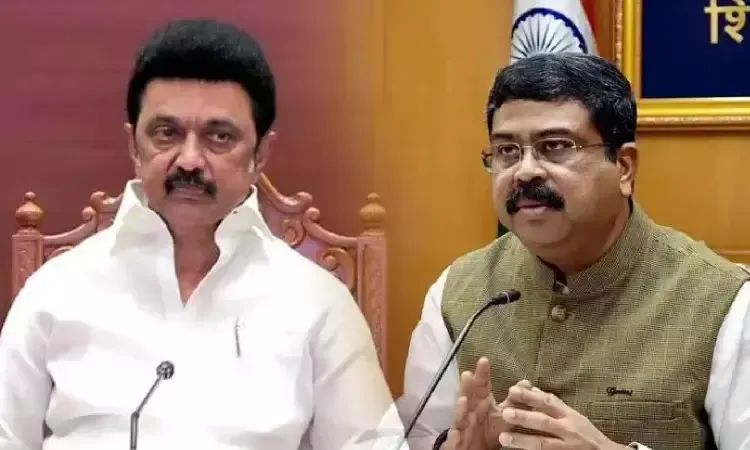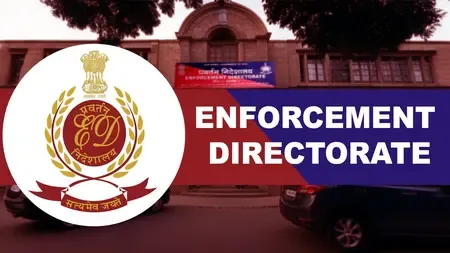Tamil Nadu CM Questions Dharmendra Pradhan on trilingual Policy's Legal Basis

Synopsis
Key Takeaways
- Tamil Nadu CM M.K. Stalin questions the legal basis of the trilingual policy.
- He claims the trilingual policy lacks constitutional validity.
- Education is a Concurrent List subject, shared by Union and state governments.
- Stalin criticizes the Central government's alleged political blackmail.
- Tamil Nadu prioritizes its linguistic heritage over NEP's three-language formula.
Chennai, Feb 16 (NationPress) Tamil Nadu Chief Minister M.K. Stalin has stood firm on the state's choice to reject the National Education Policy (NEP) 2020, arguing that the trilingual policy is devoid of any constitutional backing.
In a post shared on the social media platform X on Sunday, CM Stalin explicitly challenged Union Education Minister Dharmendra Pradhan, questioning, "Can the Union Education Minister elucidate which section of the Indian Constitution renders the trilingual policy a legal obligation?"
The Chief Minister's comments were a direct reply to Pradhan's claims that the Tamil Nadu government was politicizing its position on NEP 2020.
Stalin urged the Union Minister to point out any constitutional clause that mandates the implementation of the trilingual policy across various states.
He highlighted that education falls under the Concurrent List of the Constitution, indicating that both the Union and state governments share jurisdiction over the matter.
He asserted that the Union government cannot assert exclusive authority over educational policies, reiterating the significance of federalism in governance.
"India is a union of states, and education is included in the Concurrent List. The Union government cannot unilaterally enforce its decisions," he stated.
The Chief Minister also criticized what he termed as "political blackmail" from the Central government, referencing reports suggesting that funding could be withheld from Tamil Nadu unless the state conformed to the trilingual policy.
"Tamils will not stand for such audacity. The notion that funds would be retracted unless Tamil Nadu agrees to the trilingual policy is sheer intimidation," he remarked.
Stalin reaffirmed that Tamil Nadu is not seeking any special privileges but is merely upholding its constitutional rights.
He cautioned the Union government against undermining regional autonomy, emphasizing that any attempt to impose policies contrary to the state's wishes would encounter formidable resistance.
State Education Minister Anbil Mahesh Poyyamozhi also reaffirmed Tamil Nadu's dedication to safeguarding its linguistic and cultural heritage by prioritizing Tamil in educational institutions.
The state government has persistently opposed the NEP's three-language formula, which advocates for Hindi, Sanskrit, and English, contending that it jeopardizes the status of Tamil and undermines the state's cultural identity.
Tamil Nadu's rejection of the trilingual policy underscores the larger discourse on language policies within India's education framework.
Numerous other states have also expressed their apprehensions, promoting localized methods that favor regional languages over a centrally imposed structure.









